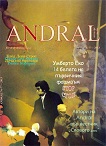


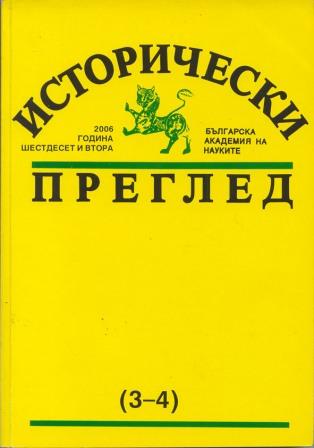
It is generally accepted fact nowadays that the stubborn protection of the national currency was among the main reasons for the severity and duration of the Great Depression. This ‘striking degree of consensus’, as Barry Eichengreen has put it (1992: 213), suggests that an early devaluation was the better option leading to steep economic recovery. Nearly 25 years ago Borchard (1979, 1984) challenged the conventional wisdom arguing that the credit constrained German economy had no alternative option but the painful deflation. Despite the attracted criticism (for example Holtfrerich 1990) today Borchard’s hypothesis seems to create a growing consensus (Ritschl 1998). In following article I will try to disclose the existing political constraints, which restricted Bulgarian decision makers in abandoning the gold parity. Ever since World War I Sofia enjoyed a limited financial sovereignty further reduced with the two League of Nation loans in 1926 and 1928. Bulgarian ‘choice’ was dictated by the League’s Financial Committee (FC) and the two creditors’ associations based in London and Paris. The medicine prescribed in Geneva for the sick Bulgarian economy included only fiscal austerity and full commitment to the gold standard. Experiencing for more than a decade the ‘new postbellum realities’ Bulgaria did not even considered the possibility of changing her currency regime. As the Prime Minister Nicola Mushanov had put it openly in the parliament ‘we are too weak to solve alone, with our own Dutch courage, the [economic] problems’. It was not that much the possible reprisals, which troubled Bulgarian government. Since 1920 the cooperation and consensual approach in the relations with the WW1 victors became a corner stone of Bulgarian external and internal policy. It was the first among defeated countries to join the League of Nations and has put enormous efforts to improve its relations, however, without much of a success, with Entente powers. The ‘honest debt payer’ formula, repeated so many times by the PM Mushanov, was an integral part of that reconciliation policy. Debt repudiation would have questioned this key policy dogma and might result into a deeper economic and political isolation. The classic reputation models have posited the existence of default penalty ‘usually interpreted as the cost of inferior access to international capital markets’ (Eichengreen 1989: 149). However, Bulgarian interwar experience shows that it was not the future access to new credit determining her choice. Sofia was more concerned with her political reputation in postwar Europe as well as the channels to the Allied powers and their Balkan clients. My hypothesis is consistent with both the Bulow- Rogoff (1989) challenge to the traditional explanation and with Cole-Kehoe’s adaptation of the reputation model (1998)...
More...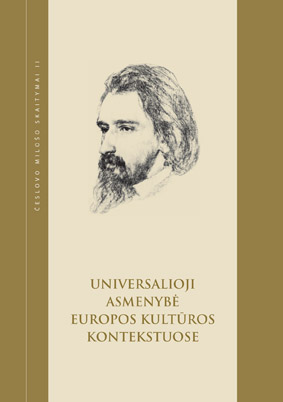
Keywords: Lev Karsavin.; emigration; the encyclopedia; theology; literary creation; Levas Karsavinas; emigracija; enciklopedija; teologija; literatūrinė kūryba
Levo Platonovičiaus Karsavino, filosofo,teologo, publicisto ir poeto, vardas tapo neatskiriama praėjusio amžiaus dešimto dešimtmečio ir XXI a. pradžios rusiškosios emigracijos enciklopedijų dalis. Jau Glebas Struvė žymiame rusų emigracijos biografiniame žodyne (G. Struvė, Rusų literatūra tremtyje, Paryžius-Maskva,1996) priskiria Karsaviną grupei asmenų, išsiųstų iš Tarybinės Rusijos drauge su N. Berdiajevu, N. Loskiu ir kitais filosofais, rašytojais,istorikais, žurnalistais, kritikais,- kurie vėliau sudarė „emigracijos intelektinį potencialą“. Autorė pabrėžia turtingą rusų išeivijos filosofinį ir publicistinį potencialą. Tarp filosofų atkreipiamas dėmesys į Levą Platonovičių Karsaviną. Kitame biografiniame žinyne (N. Berberova, Paryškinta mano. Biografinis žinynas, Maskva,1996),Ninos Berberovos knygos priede, apie Levą Platonovičių Karsaviną tik užsimenama jo gyvenimo Berlyne 1922–1924 m. laikotarpiu. Karsavinas į Berlyną atvyko 1922 m. lapkritį ir čia išleido tris knygas. 1997 m. pasirodė išskirtinis leidinys – enciklopedinis biografinis žodynas Rusų išeivija. Auksinė XXa. pirmojo ketvirčio emigracijos knyga. Tame leidinyje S. Choružyj aptaria Levo Platonovičiaus Karsavino gyvenimo ir kūrybos kelią. Jis pabrėžia Karsavino pažiūrų nepriklausomumą, priešiškumą bolševizmui, kita vertus, akcentuojamas jo palankumas įvairių Rusijos visuomenės sluoksnių filosofijai. Choružyj apibėžia filosofinį Karsavino mąstymą, paremtą „trejopu atsiradimo ir plėtotės principu“. Trys stadijos – trys vienybės, Karsavino suprantamos kaip „pirmapradė vienybė, savęs išskyrimas, savęs sujungimas“. Pagrindinė iš jų reiškia nebūtį, mirtį. Ši samprata atsispindi Karsavino knygose Apie asmenybę (1929) ir Poemą apie mirtį (1931). Išskirtinį dėmesį analizuojant Karsavino gyvenimą ir kūrybą, kaip pažymi S. Choružyj, reikia skirti lietuviškajam periodui, jo atvykimui į Lietuvą Lietuvos universiteto kvietimu, paskaitų skaitymui ir jo veikalams lietuvių kalba, pažymint daugiatomę Europos kultūros istoriją (1931–1937).
More...
Keywords: cultural phenomenon; historical antropology; historical intuitivism; historical pseudomorphosis; kultūros fenomenas; istorinė antropologija; istorinis intuityvizmas; istorinė pseudomorfozė
В статье впервые делается попытка сравнительного анализа культурологических концепций двух выдающихся мыслителей 1-й половины XX века – Освальда Шпенглера и Льва Карсавина. Актуальность темы очевидна: в совре- менном технократическом мире, все чаще сталкивающимся с труднопреодолимыми, а порой и неразрешимыми проблемами межкультурных отношений, остро ощуща- ется потребность более широкого осмысления всего спек- тра вопросов, поэтому важно вновь и вновь обращаться к гуманитарному наследию прошлого, в особенности – к трудам историков и философов межвоенного периода, получивших классическое гуманитарное образование до Первой мировой войны. Их трагическая судьба знаме- новала собой ценностный кризис середины минувшего века. Освальд Шпенглер и Лев Карсавин – современники, чьи биографии и научные воззрения имеют на удивление много общего. Несомненно позитивное влияние работ О. Шпенглера, прежде всего его труда «Закат Европы», на русского мыслителя, критически воспринявшего и переосмыслившего некоторые его установки. Уже в ранний период своего творчества оба мысли- теля заявили о себе как реформаторы исторической нау- ки. Традиционный взгляд на историю как на единый по- ступательный процесс, ранкианский историзм ими были признаны неудовлетворительными. Принципы «генети- ческой истории», пропагандировавшиеся авторитетами конца XIX – начала XX века Ф.Ланглуа, Ш. Сигнобос, В. Бернгеймом и др., им казалась недостаточными прежде всего при освещении явлений духовной культуры. Одна- ко предлагавшиеся О. Шпенглером и Л. Карсавиным пути решения – различны: если О. Шпенглер предлагал вообще отказаться от принципа единой всемирной истории, заме- нив ее историей цивилизационных моделей, то Л. Карсавин в соответствии с соловьевским принципом всеедин ства постулирует целостность всемирной истории, хотя, как и О. Шпенглер, он предлагает феноменологически оценивать события прошлого, поскольку одинаково ва-жен не только апогей, но и каждый момент истории. Если О. Шпенглер – общепризнанный родоначальник истори- ческого интуитивизма, то Л. Карсавин столь же справедливо причисляется к первым представителям антропологического направления в исторической науке. В своих фундаментальных трудах оба автора форми- ровали оригинальный взгляд на культуру. Различные на- чальные установки относительно истории человечества предопределили различия их культурологических концепций. Как и О. Шпенглер, Л. Карсавин считает приемле- мым выделение последовательных фаз в жизни конкретной культуры, однако, в отличие от немецкого мыслите- ля, культуры он не считает изолированными, закрытыми мирами. Абстрактный идеал всеединства Л. Карсавиным помещается над культурами, что позволяет сохранить единство мировой истории и теоретически обосновать возможность межкультурного диалога. Оптимизм Л. Карсавина и О. Шпенглера относительно будущего цивилизованного человечества во многом ими увязывался с исторической судьбой России.
More...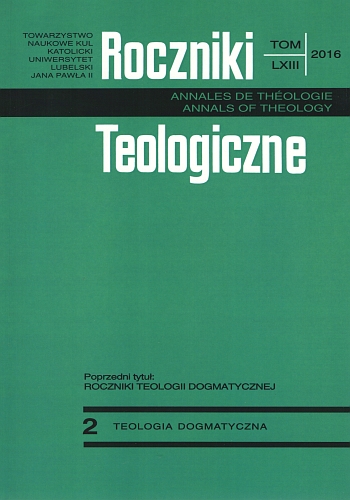
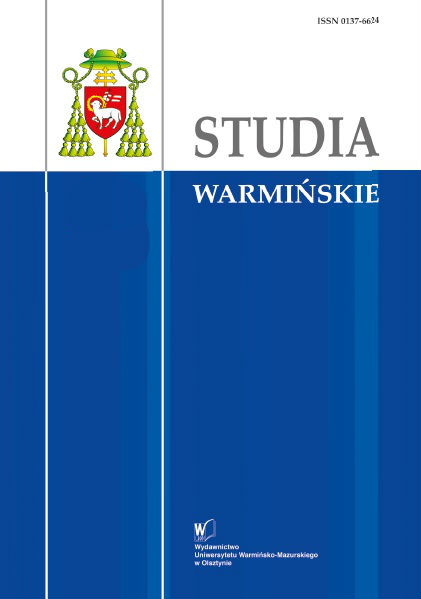

Monetary union is the final stage in economic and financial integration among countries, in the specific case analyzed in the present paper among the countries participating in the Treaty of Maastricht providing for the implementation of such a union as the ultimate objective of the convergence toward a unified Europe. Membership in such a union would require the adoption of a common currency and its circulation as a single legal tender (or the final and irrevocable pegging of exchange rates among the currencies of the participating countries), as well as the conduct of common monetary (including foreign-exchange) policy.
More...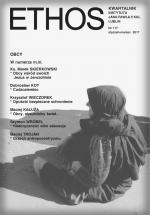
Keywords: stranger; alien; refugee; Deuteronomic Code; Old Testament literature
Regardless of their origin, cultural and social identity, as well as their social status, strangers have always epitomized the alien and puzzling reality of the unknown and the impenetrable. The ‘otherness’ of strangers and their difference contribute to twofold attitudes on the part of members of their host communities. On the one hand, the presence of strangers among us is often perceived as a threat to what we have so far believed to be certain and imponderable, which may release our defense mechanisms, deepen the distance between strangers and us, and provoke mutual aggression. On the other hand, it also happens that strangers awaken in us the feeling of superiority, which in turn makes us want to divest them of their identities and incorporate them into the structures of our society, culture and religion. The present article reconstructs both kinds of attitudes on the examples drawn from the Hebrew Bible.
More...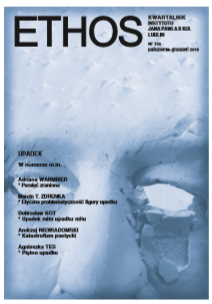
Keywords: the Fall; nothingness; freedom; objectification; good; evil; faith; creativity; fear; original sin; knowledge; mind; reason;
The article discusses two concepts of the Fall, conceived of as, firstly, the sin of knowledge and, secondly, as an attempt at freedom. The former may be found in Lev Shestov’s biblical philosophy, and the latter in Nicolai Berdyaev’s Christian gnosis. The author expounds the way in which the mentioned philosophers reconstructed the relationship between the fall, knowledge, and freedom, as well as the one between God, nothingness, and the human being. He also analyzes the problem of the consequences of the Fall of man Shestov and Berdyaev, respectively, scrutinize, as well as the ways of overcoming these consequences they propose. The paper emphasizes religious inspiration of their views and compares the conceptions they worked out, taking into account their debate on the original sin.
More...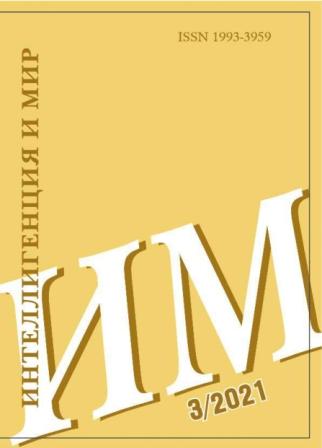
Keywords: L. A. Tikhomirov; P. A. Stolypin; G. E. Rasputin; Russian conservatism; diary; Moskovskie vedomosti; history of everyday life;
L. A. Tikhomirov (1852—1923) — revolutionary and ideologist of “Narodnaya Volya”, who went through the tsarist prison, later became a monarchist, associate of P. A. Stolypin and editor of the semi-official “Moskovskie vedomosti”, kept a diary for more than 30 years, which is now in the State Archives of the Russian Federation. The article focuses on the diary entries of 1912, which allow not only to reveal the specifics of L. A. Tikhomirov’s views, but also to show a turning point for Russia in its diversity. The author of the diary pays the main attention to the situation around the newspaper headed by him. After the death of P. A. Stolypin, the newspaper and its editor were criticized from various sides. L. A. Tikhomirov was opposed by both the publications of the Black Hundreds (“Russian Banner”, “Zemshchina” etc.) and the liberal press (“Voice of Moscow”, “Vestnik Evropy”). Along with this, the newspaper could lose its main source of income from publishing government announcements, and its subscription was constantly falling. All this, along with the loss of faith in the strength of the autocracy and health problems, gave rise to L. A. Tikhomirov’s desire to leave the post of editor. An additional problem for him was the publication in the newspaper of a series of anti-Rasputin articles in 1910—1912. The religious thinker M. A. Novoselov and the circle of religious thinkers of the Slavophil direction, to which L. A. Tikhomirov belonged, played an active role in defamation of G. Ye. Rasputin on the pages of Moskovskiye Novosti. These articles displeased Nicholas II, who earlier, at the suggestion of P. A. Stolypin, favorably perceived the activities of L. A. Tikhomirov. L. A Tikhomirov also faced a prison sentence for libel (the trial was initiated by his opponents). In addition to addressing political and religious events, the text of the diary contains the author's reflection on his own personality and the fate of Russia, from which he was not distracted even by the 100 th anniversary of the Patriotic War of 1812.
More...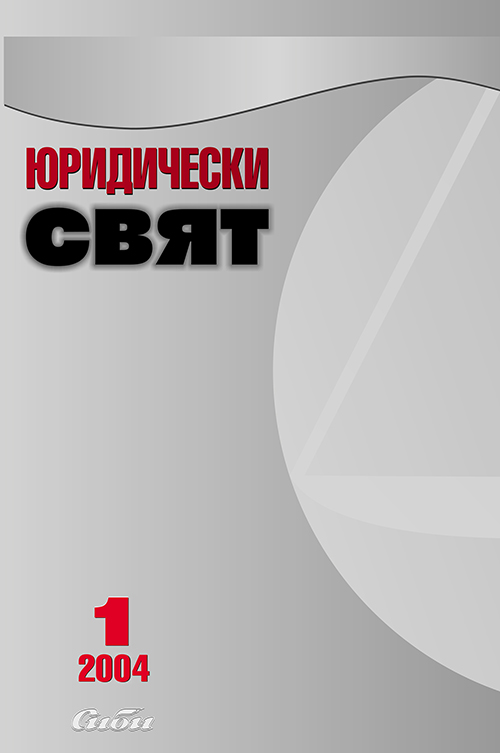
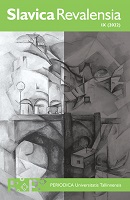
Keywords: 20th-Century Russian Literature; Anna Akhmatova (1889—1966); Lev Ahrens (1890—1967); Grigory Petnikov (1894—1971); Correspondence; History of Literature;
This article, completed during Dr. Polina Poberezkina’s stay in Estonia, examines several accounts of Anna Akhmatova’s last years and the poet’s funeral. It is centered around some letters of Lev Ahrens to Grigory Petnikov from the Central State Archive-Museum of Literature and Arts (Kyiv, Ukraine) supplemented by letters from Anna Garf and Natalia Briukhanenko to the same addressee.
More...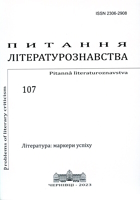
Keywords: Hryhorii Skovoroda; Lev Shestov; philosophy; God; life; science; literature;
The aim of this paper is to reveal a typological kinship between two outstanding religious thinkers of different eras – Hryhorii Skovoroda and Lev Shestov, who are rarely addressed in conjunction with each other. Drawing on the scarce existing research on this rich, but heavily under-researched topic, we trace the inner connection between their respective philosophical worldviews, paying a special attention to the gnoseological (epistemological) aspect of their teachings. While staying within the framework of religious faith, fundamental for both thinkers, we scrutinize their relationship with reason, focusing on the attitude of both to the scientific method. At the same time, as a distinctive feature of our analysis, we apply a literary-centred approach rather than purely philosophical one, and draw on the optics of poets and writers, characterised by their own unique philosophical premonitions. As we argue, this is justified at various levels, including the closeness of both thinkers under study to the world of literature, especially poetry, which, arguably, had a profound impact on their philosophical discourse and helped to shape their ideas. Not aiming at providing a comprehensive comparative analysis of Skovoroda and Shestov, we nevertheless hope that this paper will pave the way for future studies, and demonstrate the productiveness of our method, shedding some new light not only on these two exceptional thinkers, but also on the intrinsic proximity between religious philosophy and the world of poetry more generally.
More...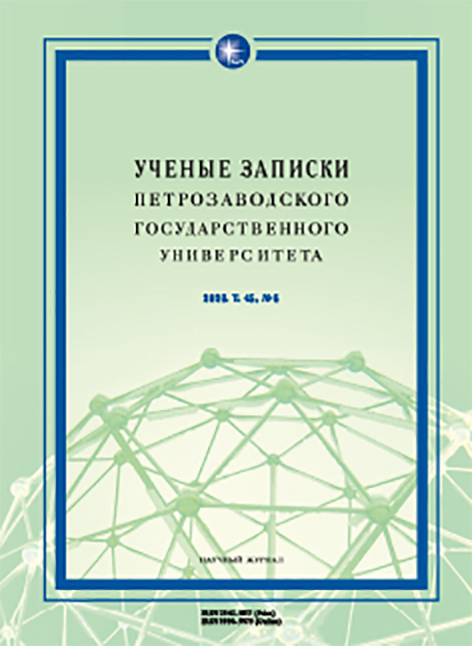
Keywords: Udmurt literature; textbooks; anthologies; poems; source text; translations;
The article focuses on the presentation of literary texts in Udmurt academic publications of the second half of the XIX and the early XX centuries. The relevance of the topic is due to it being insufficiently studied in Udmurt philology. It is stated that the main corpus chosen as reading and learning materials for national textbooks were the works of Russian writers, which served as «golden standard» examples in Russian curricula. The aim of the work is to identify the transformational changes (regarding imagery, meaning, rhymes, rhythmic and other structural features) in the Udmurt texts that occurred during translation. The author analyzed poems by Vladimir Odoevsky and Lev Modzalevsky using comparison and contrast, as well as the motivie-figurative and contextual approaches. It was revealed that the content and semantic parts of the translated versions depended on the socio-cultural and political situation in the country. Over time, the texts from the textbooks migrated to other spheres, were borrowed by poets and integrated into prose texts, acquiring a new intertextual context.
More...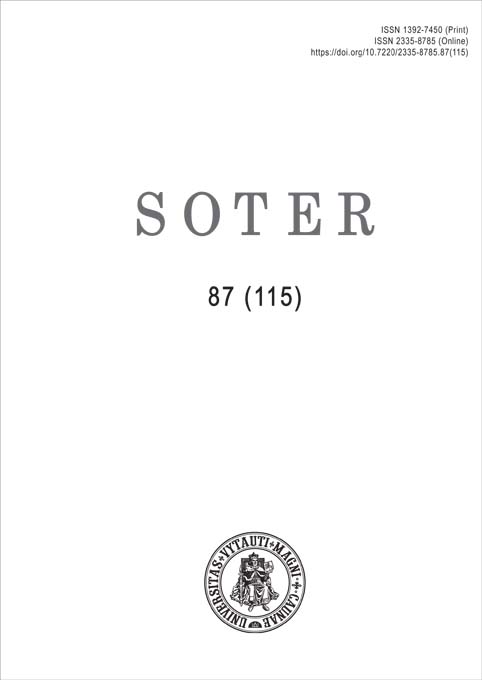
Keywords: China in the 19th century; The Catholic Church in China; The Second Opium War; Catholic missions; Academician Lev Igorev (1822–1894);
The published letter of Academician Lev Igorev (1822–1894) about the events of 1860 in China and about the situation of Catholics in the country is of interest not only to Sinologists and Church historians, but also to researchers of international and interreligious relations, to historians of painting and photography. The value of this source is given by the mention in it of a significant number of important historical figures, facts, details, primarily about Catholicism in China: parishioners, clergy, missions, temples, rites. In the context of Academician Igorev‘s memoirs published in 1896, his Beijing letter expands and clarifies knowledge about China in the 1860s, about the life of the country‘s Catholics. The original letter is stored in the State Archives of the Irkutsk Region, in the fund of the Irkutsk Roman Catholic Church, and it is most likely addressed to the rector Christopher Shvermitsky (1812–1894), a native of Suvalkia, who led one of the largest parishes in the world from 1856 to 1894. /Publikuojamas akademiko Levo Igorevo (1822–1894) laiškas apie 1860 metų įvykius Kinijoje ir apie katalikų padėtį šalyje naudingas bei įdomus ne tik sinologams ir Bažnyčios istorikams, bet ir tarptautinių bei tarpreliginių santykių tyrinėtojams, tapybos ir fotografijos istorikams. Šis šaltinis vertingas todėl, kad jame paminėta nemažai svarbių istorinių asmenybių, faktų, detalių, susijusių su katalikybe Kinijoje: parapijiečiais, dvasininkais, misijomis, šventyklomis, pamaldomis. 1896 metais išleistų akademiko Igorevo atsiminimų kontekste jo Pekino laiškas praplečia ir patikslina žinias apie 1860-ųjų Kiniją, apie šalies katalikų gyvenimą. Laiško originalas saugomas Irkutsko srities valstybiniame archyve, Irkutsko Romos Katalikų Bažnyčios fonde ir greičiausiai buvo adresuotas klebonui Kristupui Švirmickui (1812–1894), kilusiam iš Suvalkijos, vadovavusiam vienai iš didžiausių parapijų pasaulyje 1856–1894 m.
More...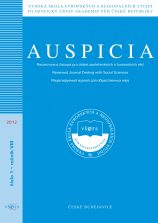
Keywords: Alexis de Tocqueville; democracy in America; French Revolution; manners; equality; democratic despotism; new religion; T. G. Masaryk; Lev Thun;
Alexis de Tocqueville analyses in his work Democracy in America (volume I: 1835, volume II: 1840) the crisis in Europe after the French Revolution in relation to a kind of democracy functioning in the United States. He believes that the Revolution was not an arbitrary historical event. It was the necessary outcome of the general continuous effort of social development towards the social equality. As the most important factor that creates the awareness of equality and keeps the successful functioning of democratic republic in the United States Tocquevill considers the specific social behaviour – manners. Original social units or norms of thinking and behaviour emerged from a long-standing development base in the connection of the theory with the practice. Social behaviour and habits are not the only force driving the spontaneous social dynamics which comes from the natural human ability to come and join together. For the democratic principle the natural social dynamics is implicit: the idea of social conditions equality. Furthermore, Tocqueville warns us that democracy can be endangered by democratic despotism. The first Tocqueville’s critical reflection of the democratic society focuses on the problem of urging justice, the second one is connected with the problem of social cohesiveness maintenance, the third one with the tendency of democratic systems to the centralisation of power. The particular moral character of America is kept by religion. Tocqueville is convinced that every egalitarien society, which intends to govern, requires the natural moral discipline anchored in the consciousness of every individual. This conscious submitting of one’s own will to the higher will is not enforced by the fear of punishment. It is the free-will consciousness where freedom meets the „Democratic and Republican“ Christianity of the New World. The priority of irreplaceable role of the religious moral influence in relation to individual and the whole society reminds us of thinking and effort of the Czech philosopher, sociologist, politician and statesman, the first president of the Czechoslovak Republic and successor of Franz Brentano Tomáš Garrigue Masaryk. I should remark that Tocqueville inspired also a significant Czech nobleman, politician and school reformer Lev Thun (1811-1888).
More...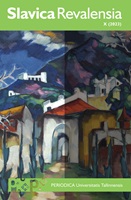
Keywords: Gabriel Superfin at 80; 20th-Century Russian Literature; Ellis (Lev Kobylinsky; 1874—1947); Wolfram von Eschenbach (1170—1220); Parzival; Translation; Textual Criticis;
This is the first publication of a previously unknown translation of over 200 lines from Parzival by Wolfram von Eschenbach, which survived in Ellis’ (Lev Kobylinsky) anthology Pevtsy Germanii (Singers of Germany). Ellis started to compile this anthology with the purpose of demonstrating the incompatibility of genuine German cultural and religious traditions with the ideology of the Third Reich. His selection of texts for the translation was largely prompted by his previous studies, which included Richard Wagner and Wagner’s sources, esoteric interpretations of the image of the Holy Grail, and the reception of monuments of the Western European Middle Ages.
More...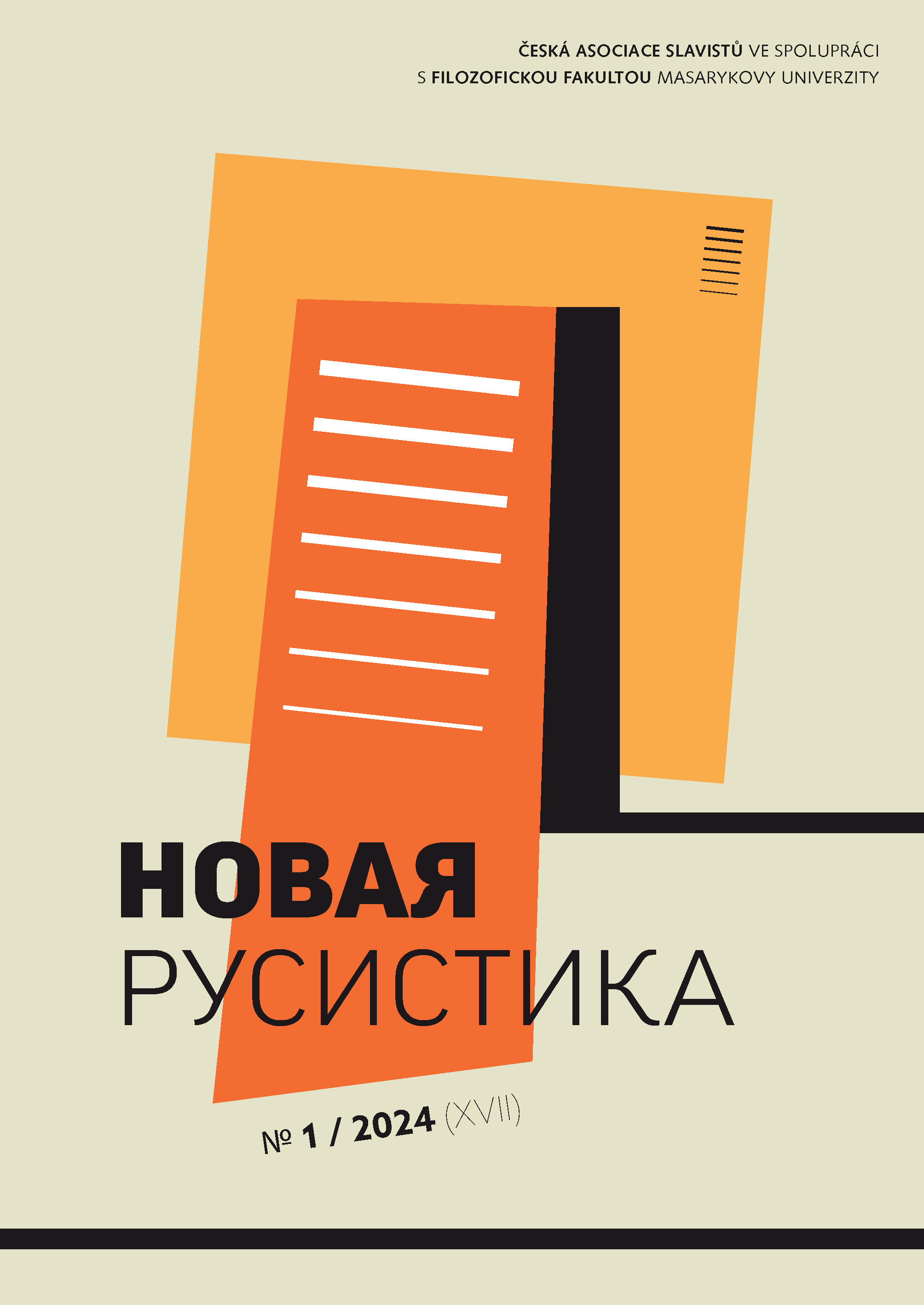
Keywords: Lev Tolstoy; War and Peace; Austerlitz; historical memory
Following Pierre Nora's concept of topical historical memory, the author examines Lev Tolstoy's War and Peace and Alois Slovák's Cairn of Peace. Both these cultural facts seek to resist the return to the Middle Ages and create a certain mechanism of humanistic historical memory for the whole of mankind. In this context the historical views of the author of War and Peace acquire a renewed meaning, since it was precisely his view of history that prevented him from receiving the 1902 Nobel Prize. His prediction of an imminent anthropological catastrophe, the first symptom of which was indifference towards the simultaneous destruction of thousands of human beings in the name of invented historical values, unfortunately went unheard by his contemporaries and came to fruition in the 21st century.
More...